12 Plants That Will Keep Snakes Out of Your Yard, Pest Experts Say

You may have heard that lavender plants help keep mosquitoes at bay or that eucalyptus deters wasps—but did you know there are a slew of snake-repellent plants that keep these slithery reptiles out of your yard and garden?
Pest experts say that strategically planting the right flowers, shrubs, and herbs can help keep dangerous snakes away and make your outdoor space safer. However, there’s no one “magic plant” that will ward off all snakes, notes Lindsay Hyland, a gardening expert and the founder of Urban Organic Yield.
“Different plants have different properties that may or may not appeal to a certain type of snake, so it really depends on the type of snake you are trying to repel and what kind of environment it is in,” she explains.
Snake-repellent plants broadly filter into one of two categories, according to Georgina Ushi Phillips, DVM, a writer for The Reptile Room and a Florida-based veterinarian. The first is physical: They’re uncomfortable to slither on, so snakes steer clear. The other is olfactory: Snakes avoid them because the smell is offensive.
Either will do the trick, so keep reading to hear from pest experts about the best plants to keep snakes out of your yard.
RELATED: 4 Scents That Attract Snakes to Your Yard, Experts Say.
1
Chrysanthemums
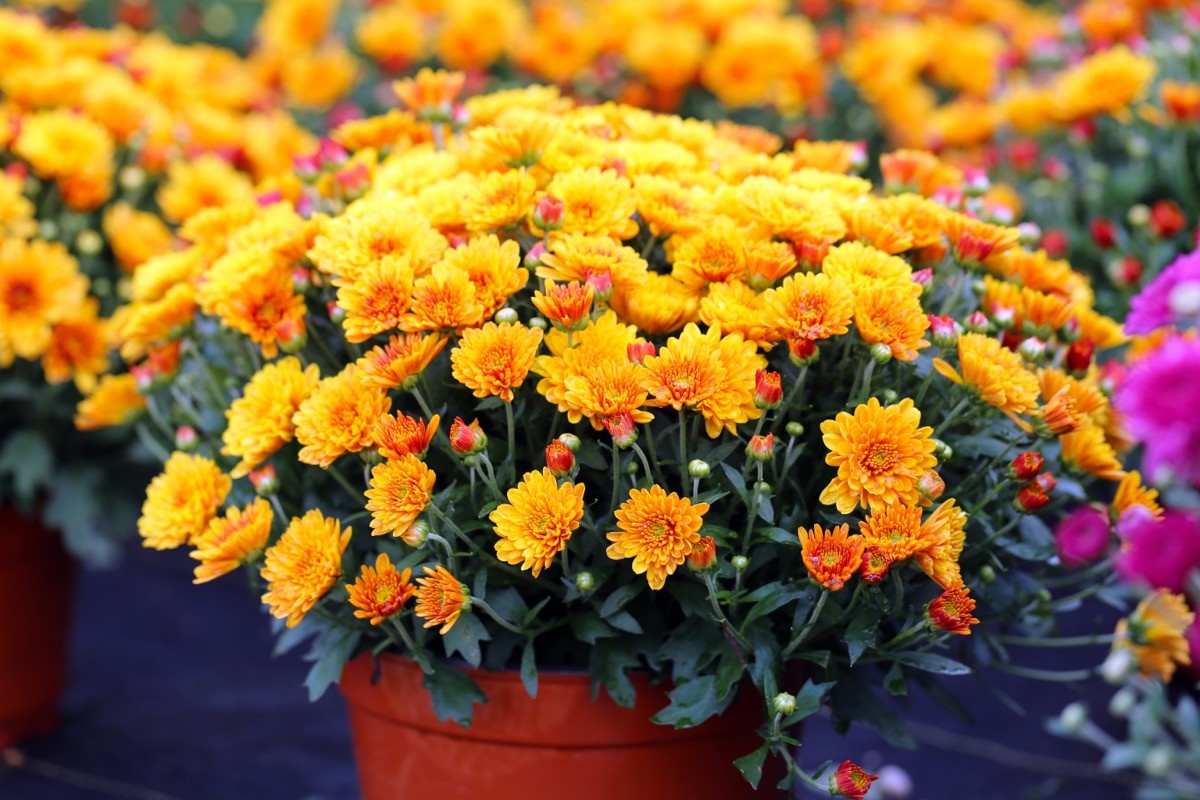
The unofficial fall flower, mums—formally known as chrysanthemums—are not just a pretty addition to your yard; they’re also a seriously potent snake repellent.
“There are many plants that repel snakes, but the most effective ones are those that contain a chemical called pyrethrum,” Hyland says. “This natural chemical comes from the chrysanthemum flower and is deadly to snakes.”
Mums will also keep many insects at bay. In fact, according to National Geographic, the chemical “can be extracted and used to create natural insecticides that farmers spray on crops to protect them from mites, ants, and aphids without harming anyone’s health.”
2
Snake plant
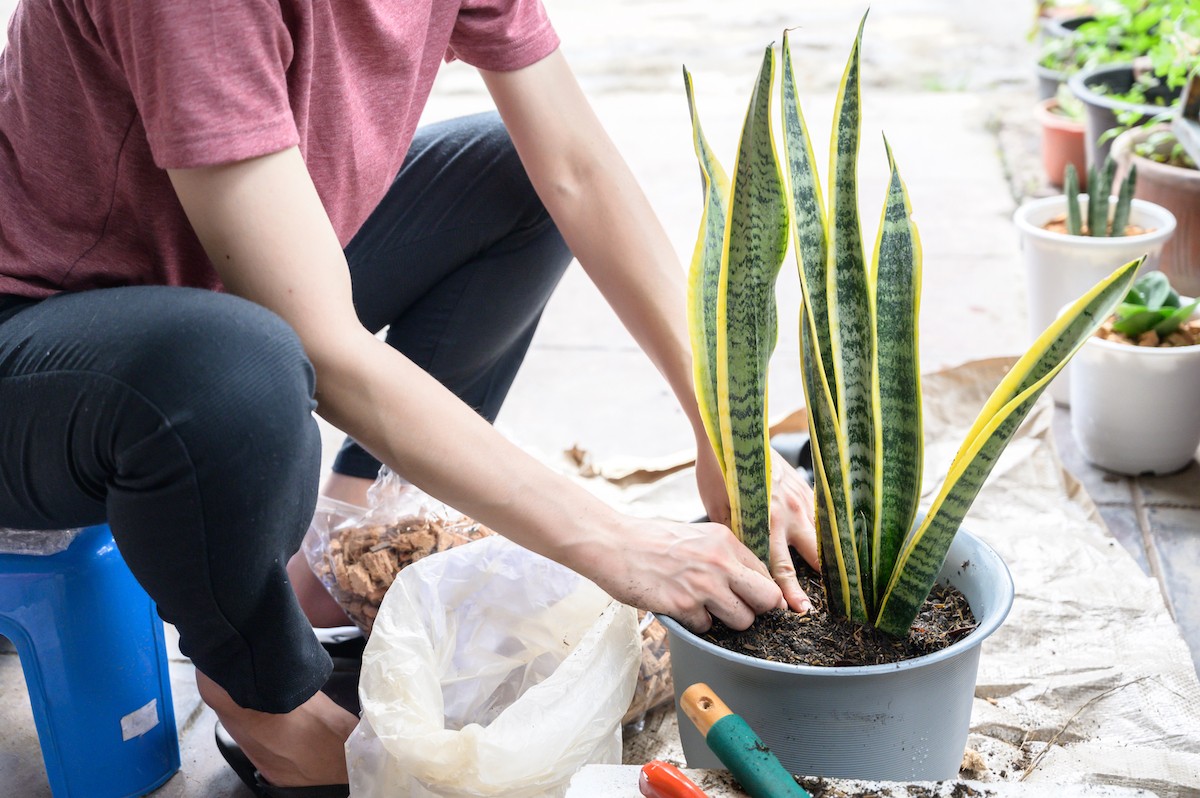
There’s more than a hint of irony that the snake plant—also referred to as mother-in-law’s tongue—is a known snake-repellent plant. Of course, there’s its name, but it also looks like a snake itself! This appearance has lent it an almost mythological air that serpents stay away because they’re scared of it.
“It’s often suggested that the visual appearance of [this plant] is what deters snakes, but I haven’t found any evidence to support that,” Phillips notes. Instead, she says it’s “likely the sharp and stiff leaves” that drive any snake neighbors hither.
A bonus is that the snake plant is very low-maintenance (it’s technically a succulent and a very popular houseplant) and is considered a great choice for plant novices.
3
Marigolds
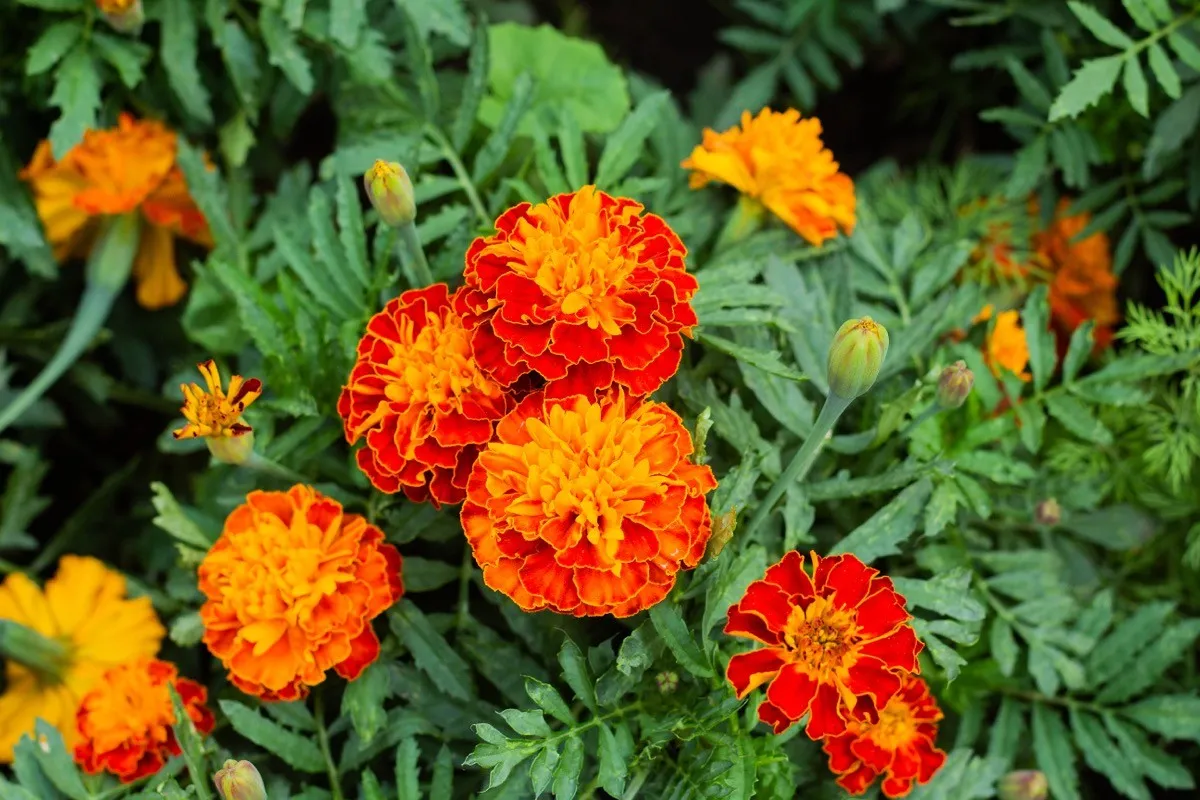
Hyland says the marigold is another flowering plant with a potent scent that repels snakes.
“Marigolds release a strong odor that many snakes find offensive, so they will avoid areas where these flowers are planted,” she explains. Like mums, marigolds do double duty as one of the most popular insect repellents.
“Plant them around the perimeter of your garden or in areas where you want to discourage snakes,” recommends Benita Middleton, head gardener at Benita’s Garden Services.
RELATED: 6 Top Signs There Are Snakes in Your Yard.
4
Holly
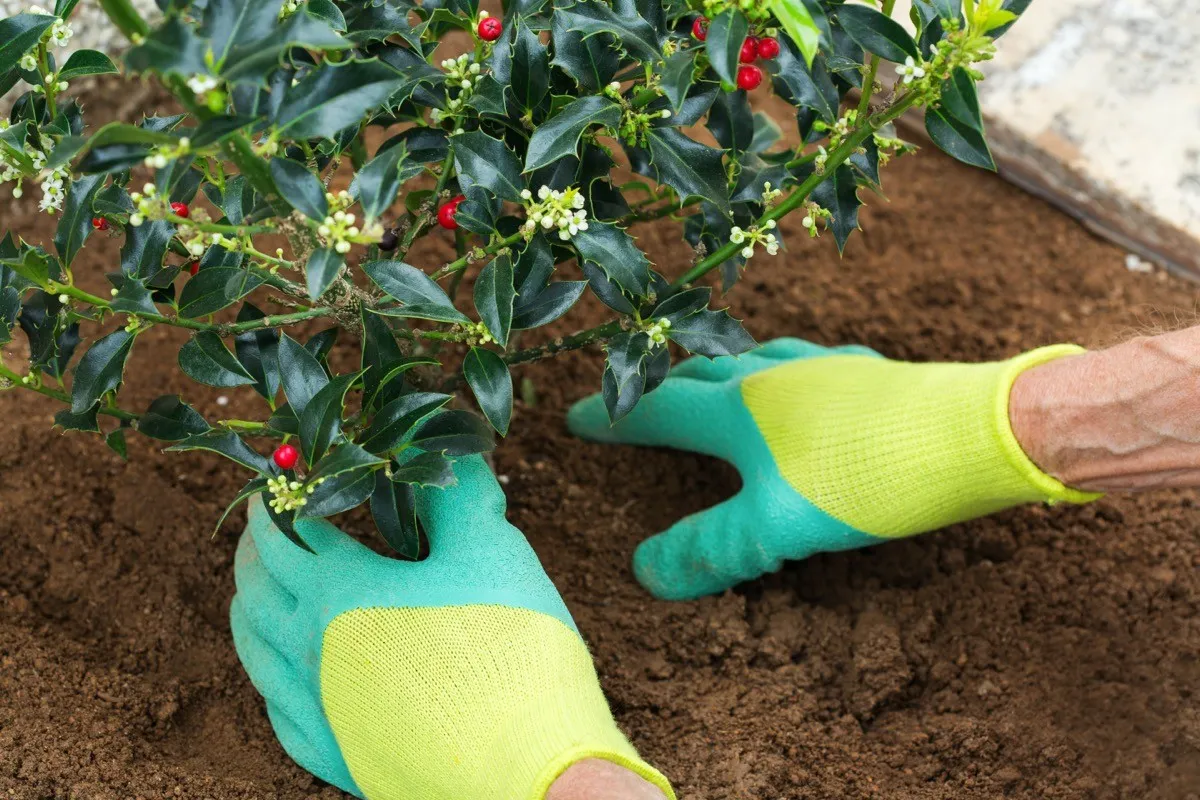
Like snake plants, holly plants—which you may recognize for their holiday season-approved red berries and pronged leaves—can keep snakes away thanks to the surface of their prickly leaves.
“The unpleasant texture is usually easy enough for snakes to avoid,” Phillips says. For additional snake repellent, she suggests spreading holly leaves around your yard.
5
Wormwood
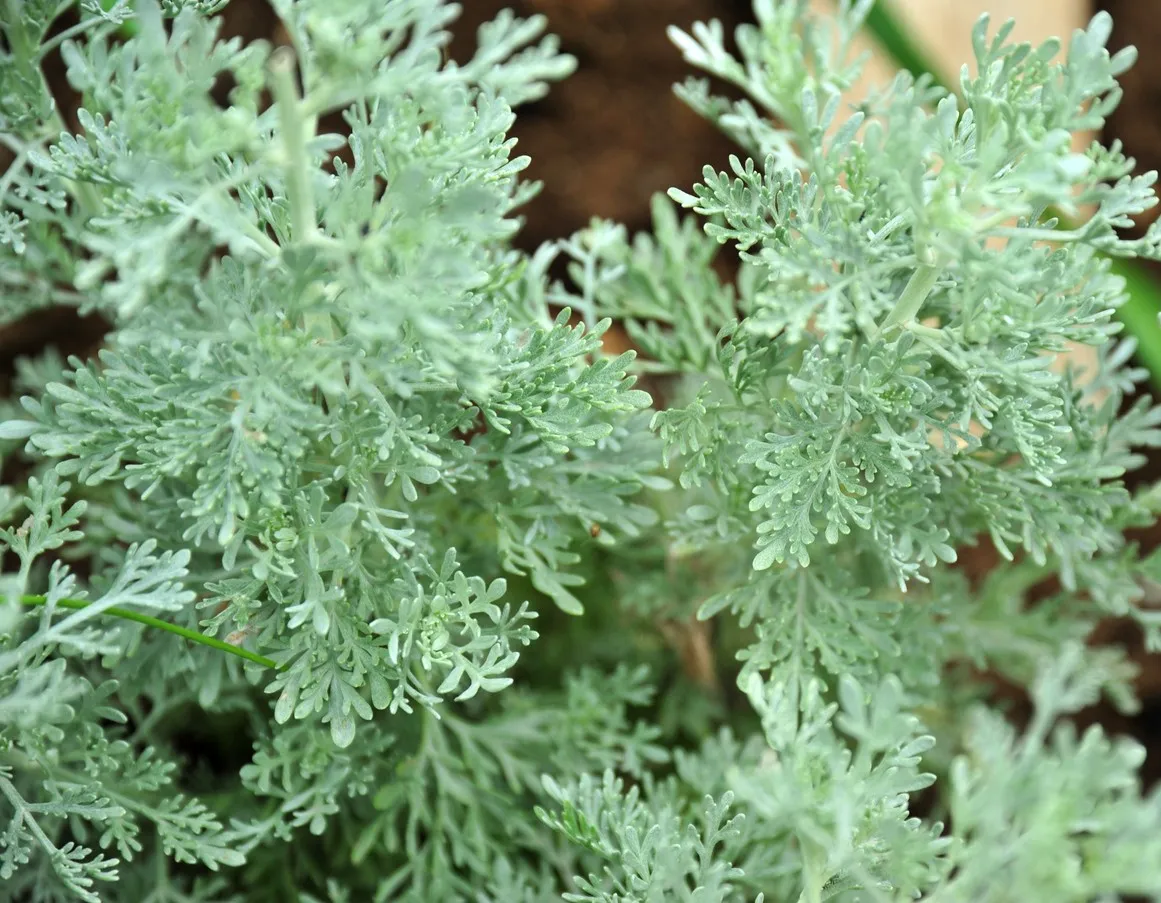
“When building a large garden in an area that is known for its snake wildlife, I always recommend planting wormwood around the edges of the patio or the garden perimeter,” Granger McCollough, the founder and CEO of Elite Patio Direct, tells Best Life. “Snakes cannot stand the smell of wormwood.”
What’s more, since wormwood is fairly large—plants can range from two to three feet in size—it can also physically obstruct snakes in addition to offending their sense of smell. And it’s also known to keep bees away.
6
Yellow Alder
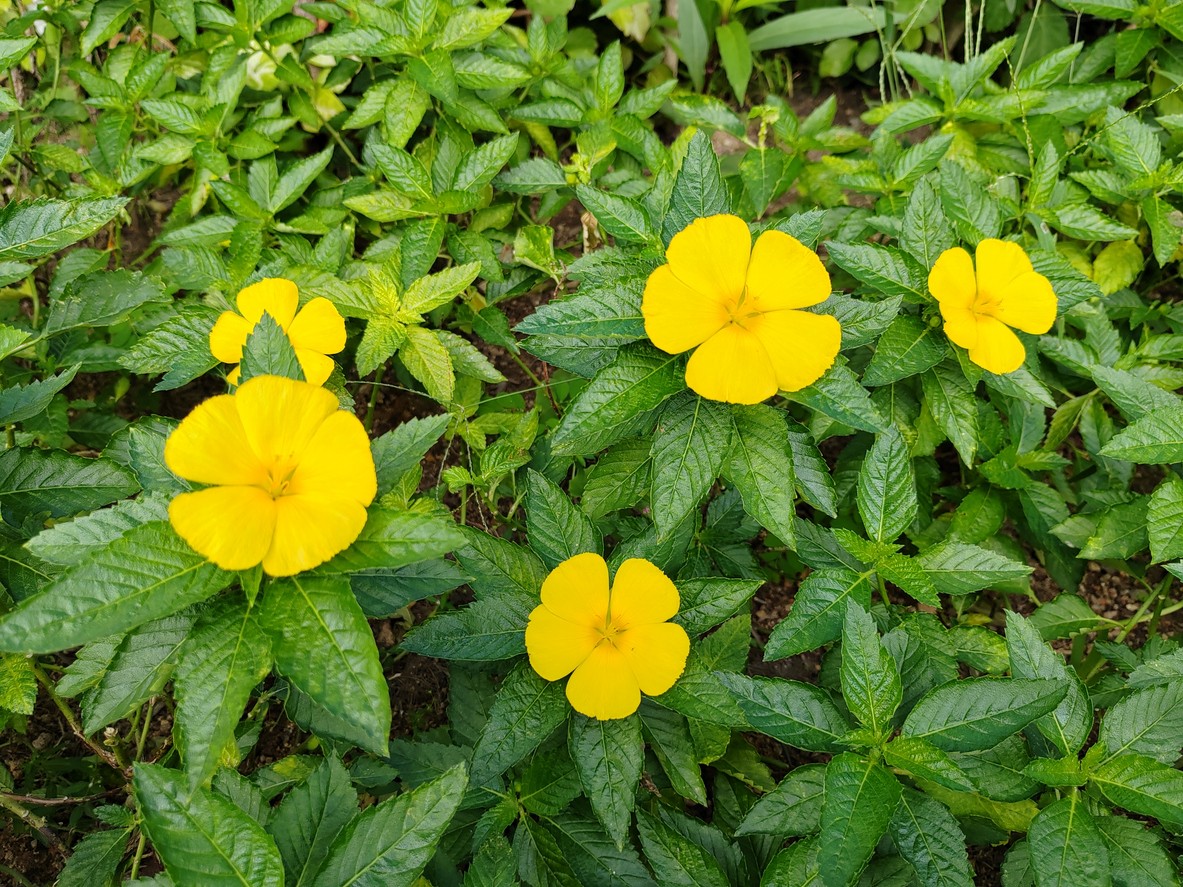
According to the University of Florida’s Institute of Food and Agricultural Sciences (UF/IFAS), yellow alder is a shrub native to the Caribbean with yellow flowers that open in the morning and close at night. Though this plant will attract butterflies to your garden, it will also help keep snakes out.
According to a 2018 study published in the International Journal of Plant, Animal, and Environmental Sciences, snakes are turned off by yellow alder’s appearance and pungent smell. However, it’s important to note that the study does not take into account the U.S. climate and snake species.
RELATED: 9 Scents That Repel Snakes, According to Experts.
7
Basil
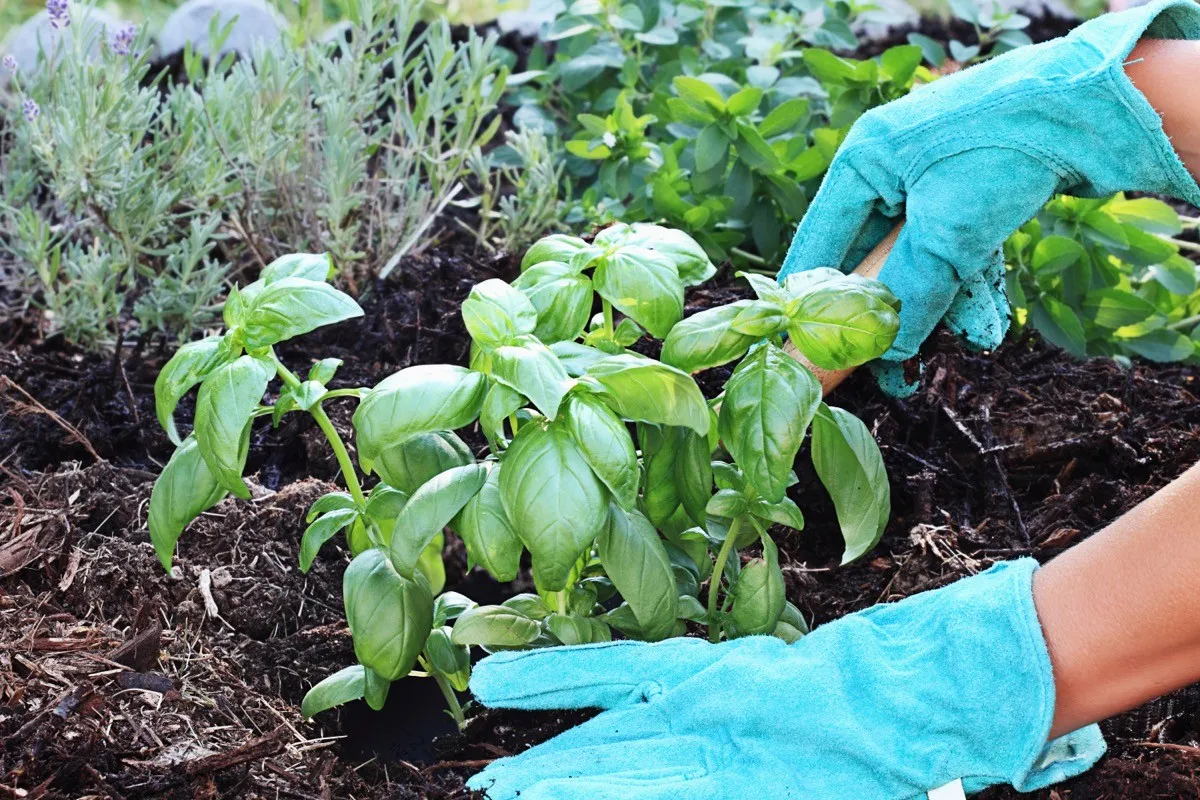
In pesto, on pizza, and in certain summery cocktails, humans love basil—largely because it smells amazing. But snakes, on the other hand, find it repulsive.
“Snakes cannot stand the smell of basil,” McCollough says. “Basil is also able to grow indoors if your snake problem exceeds your patio or garden.”
8
Painted daisy
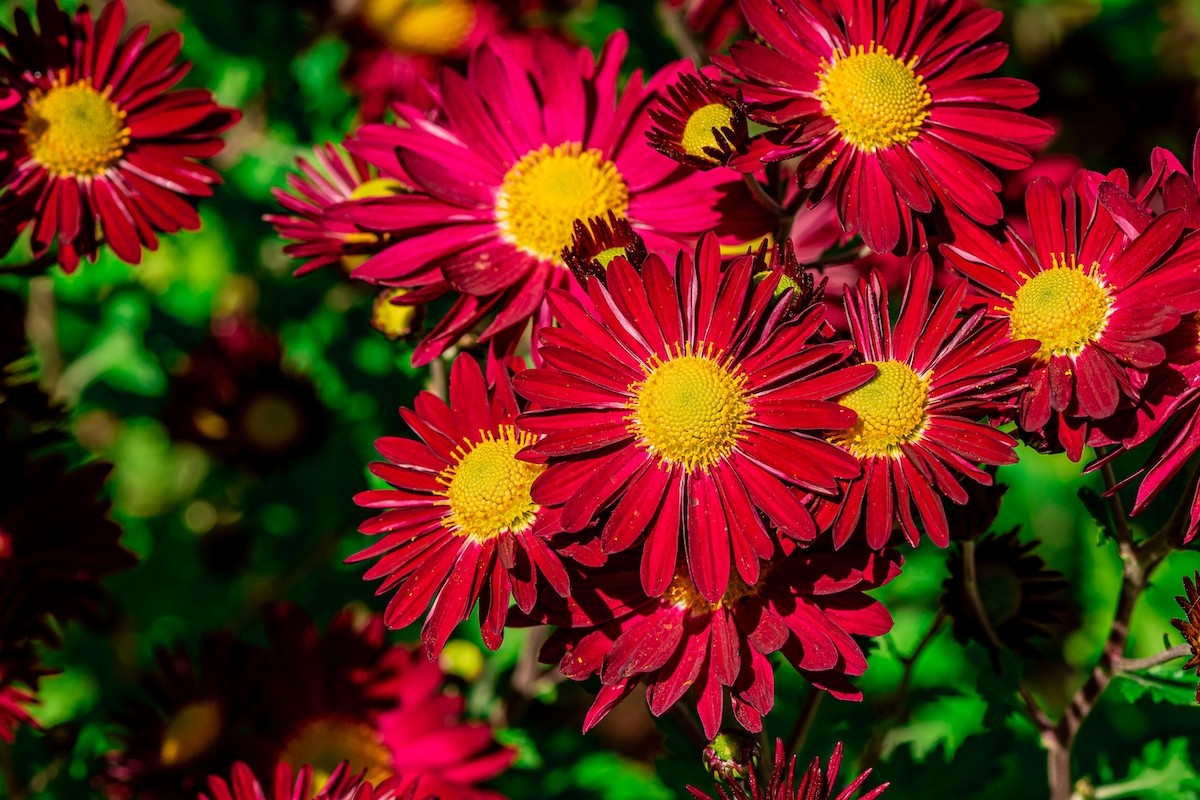
If the traditional gold chrysanthemums don’t fit your garden aesthetic, consider adding some colorful painted daisies. This flower is part of the same family as mums and, therefore, also contains pyrethrum.
According to Ferry Morse, this is a low-maintenance plant that does attract bees and butterflies but is deer-resistant. It’s also drought-tolerant and pet-friendly.
9
Cactus
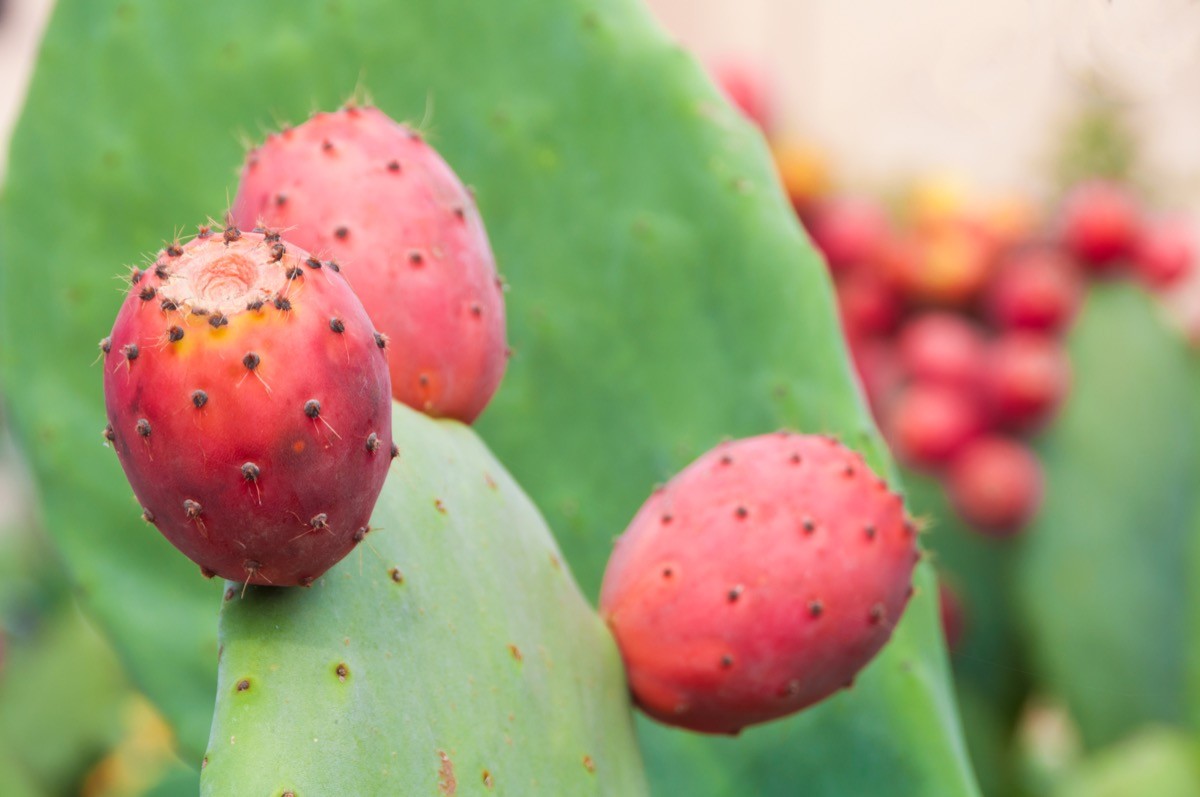
Perhaps no plant has a more unpleasant texture than a cactus, so if you live in a climate where they’ll grow outside, these can work as a natural snake repellent.
However, do be aware that, surprisingly, cacti won’t necessarily deter other rodents from your garden. According to Gardening Know How, rats, gophers, and ground squirrels “are willing to brave the formidable spines to get to the sweet nectar hidden beneath.”
RELATED: 9 Best Plants That Repel Mosquitoes Naturally, Experts Say.
10
Garlic
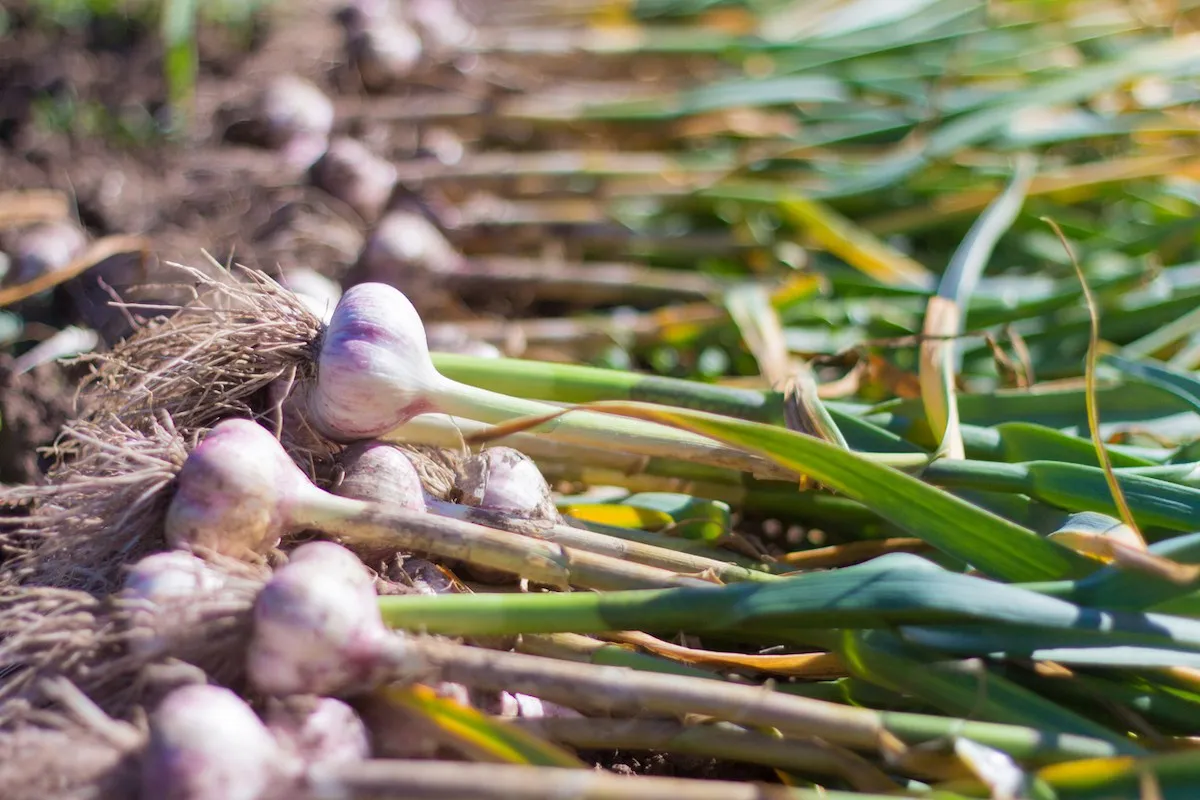
When it comes to Italian cooking, basil and garlic go hand-in-hand. And as it turns out, they’re both good at repelling snakes, too.
“Some people believe that the strong smell of garlic repels snakes,” explains Middleton. “Planting garlic around your garden or using garlic-based sprays may provide some deterrence.”
11
Lemongrass
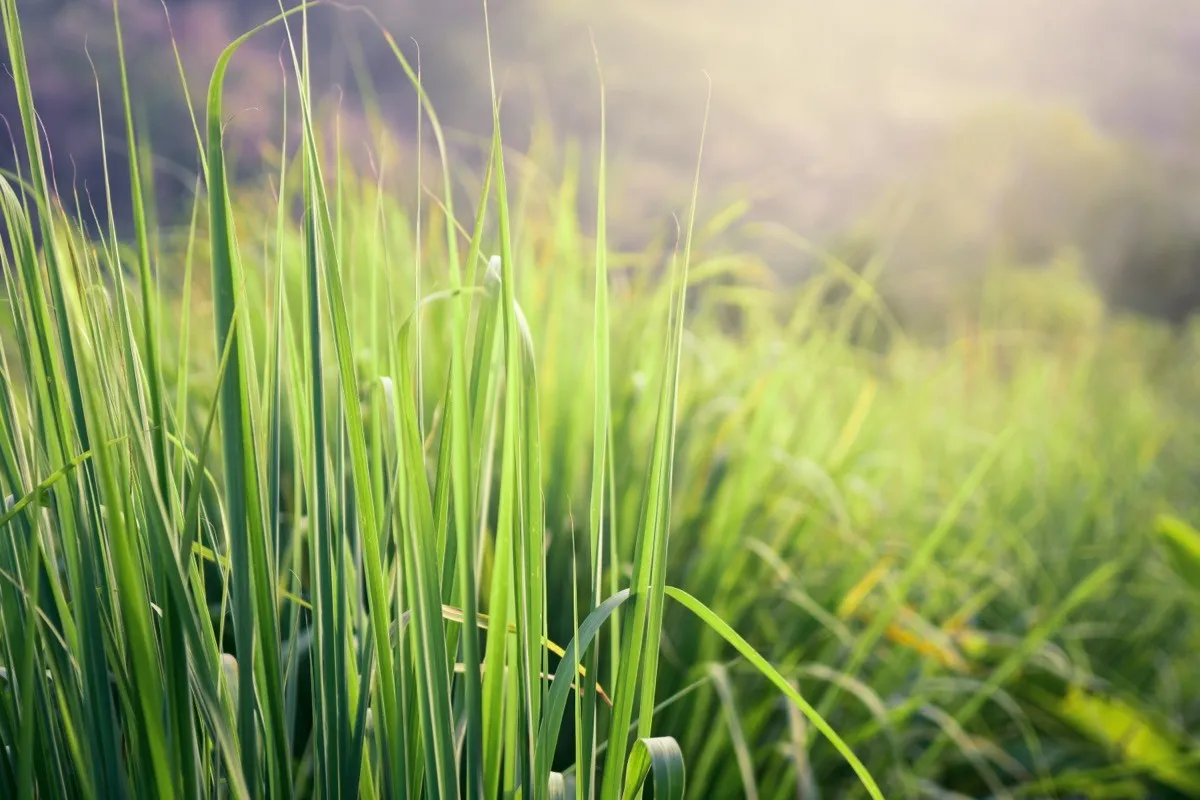
Another herb that snakes can’t stand the smell of is lemongrass. In fact, Bryan Clayton, CEO at GreenPal, notes, “Its citronella aroma is often used in insect repellants.”
12
Peppermint
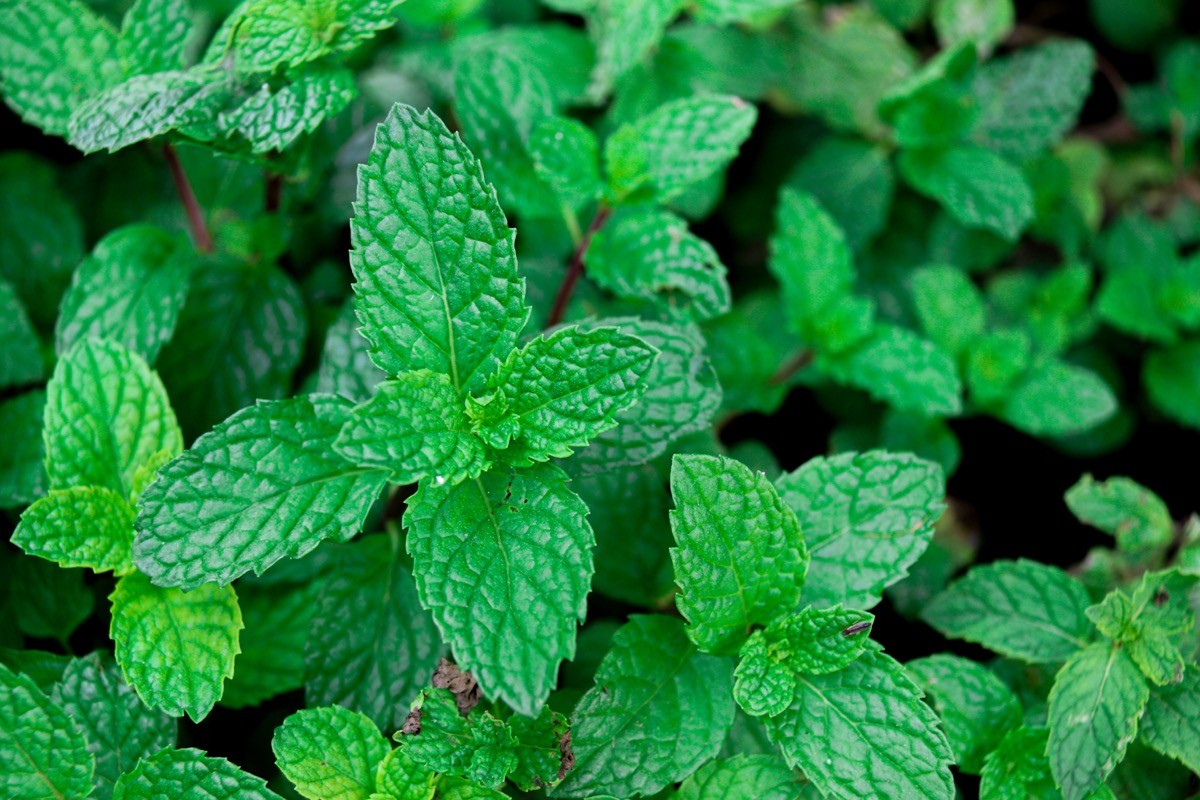
In general, snakes frequent locations with food sources, namely rodents. So, if you can keep said rodents out of your yard, there’s a lower chance snakes will follow.
One of the best mouse-repellent plants is peppermint. “Mice highly dislike the strong scent of peppermint due to its overpowering nature,” Aaditya Bhatta, founder and editor of Plants Craze, previously explained to Best Life. “It can confuse their sense of smell and deter them from approaching areas where peppermint is planted.”
Peppermint is also known to repel mosquitoes, ticks, spiders, and roaches.
RELATED: 7 Easy Ways to Get Rid of Garden Snakes, Pest Experts Say.
Other ways to keep snakes out of your yard.
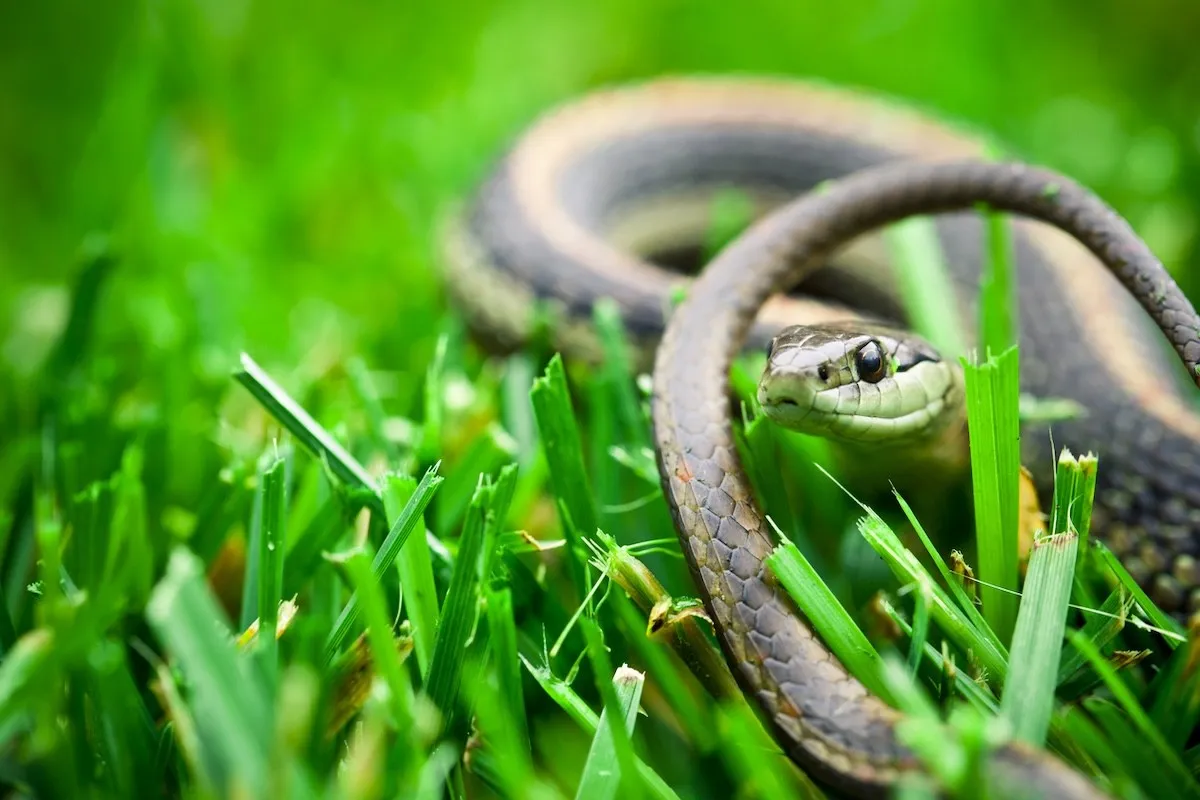
While plants can help ward off snakes, Clayton says that maintaining a clean yard is also essential: “Regular lawn maintenance, such as mowing the grass and pruning bushes, reduces hiding spots for snakes. Cleaning up debris, leaf piles, and clutter can also make your yard less appealing to these reptiles.”
And since snakes are typically on the hunt for food and water, ensure that there are no spots in your yard collecting standing water or that any hoses aren’t leaking. Likewise, don’t keep pet food outside, and be aware of bird feeders. And remember: Snakes like to eat rodents, so keep your trash sealed to deter pests like mice and rats.
“If you have a persistent problem with snakes, it may be best to consult with a pest control expert to understand the best course of action for your specific situation,” advises Clayton.